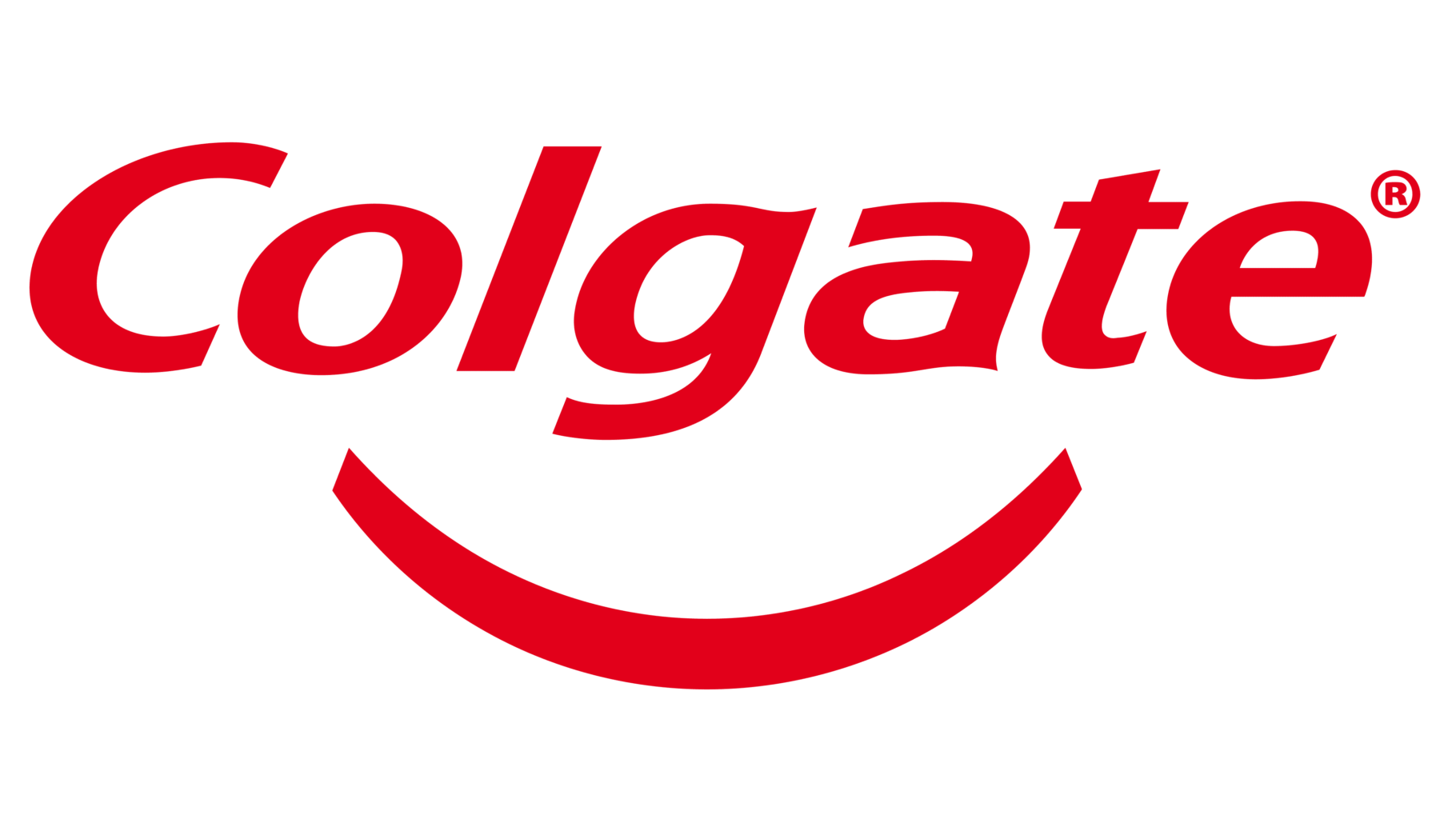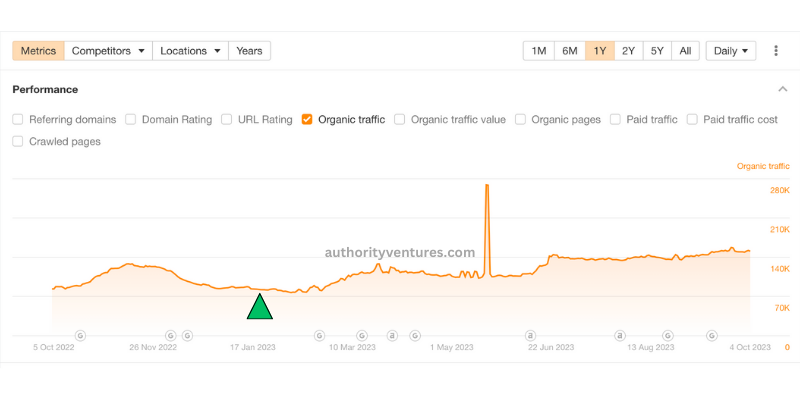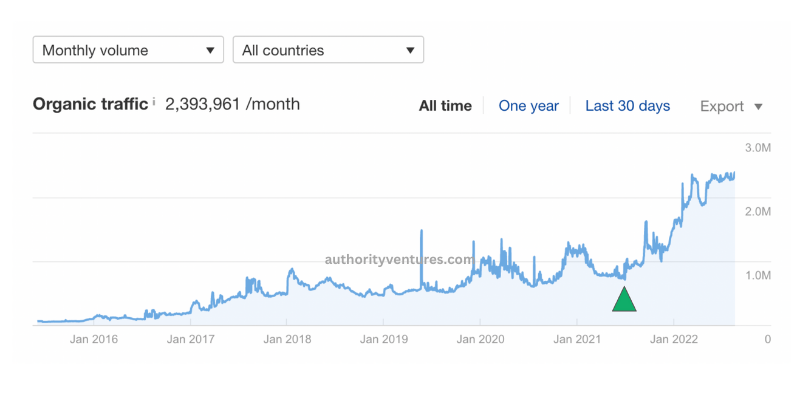Keyword Research Services
Get Keywords That Drive Meaningful Traffic Giving You Leads & Sales.

Trusted By





Keyword Research - What To Expect
 Comprehensive Analysis: Dive deep into your niche to uncover hidden keyword opportunities.
Comprehensive Analysis: Dive deep into your niche to uncover hidden keyword opportunities.
 Competitor Insights: Understand what keywords your competitors target, and outsmart them.
Competitor Insights: Understand what keywords your competitors target, and outsmart them.
 Search Volume Data: Know how often your keywords are searched for, ensuring market relevance.
Search Volume Data: Know how often your keywords are searched for, ensuring market relevance.
 Keyword Difficulty Assessment: Gauge how challenging it will be to rank for specific keywords.
Keyword Difficulty Assessment: Gauge how challenging it will be to rank for specific keywords.
 Long-Tail Keywords: Discover extended phrases with lower KD but high conversion potential.
Long-Tail Keywords: Discover extended phrases with lower KD but high conversion potential.
 User Intent Classification: Determine if a keyword leads to informational, transactional, or navigational queries.
User Intent Classification: Determine if a keyword leads to informational, transactional, or navigational queries.
 Localized Research: Get keywords tailored for specific regions to reach your target audience.
Localized Research: Get keywords tailored for specific regions to reach your target audience.
 SERP Analysis: Understand the current top-ranking pages and what it takes to outperform them.
SERP Analysis: Understand the current top-ranking pages and what it takes to outperform them.
Our Premium Keyword Research Services
Identifying Core Keywords
 At the heart of any successful SEO campaign lies the core/seed keyword. We dive deep into understanding your brand, products, and services to pinpoint the most potent keywords.
At the heart of any successful SEO campaign lies the core/seed keyword. We dive deep into understanding your brand, products, and services to pinpoint the most potent keywords.
List of Secondary Keywords
 Beyond the primary focus lies a spectrum of secondary keywords – crucial for comprehensive online visibility. Our team curates a robust list of these terms capturing varied search intents.
Beyond the primary focus lies a spectrum of secondary keywords – crucial for comprehensive online visibility. Our team curates a robust list of these terms capturing varied search intents.
List of Semantic Keywords
 By understanding the context and meaning behind search queries, we position your content for higher relevance. This not only boosts your SEO but also provides a richer experience for your users.
By understanding the context and meaning behind search queries, we position your content for higher relevance. This not only boosts your SEO but also provides a richer experience for your users.
Content Opportunity Mapping
 Every keyword is a potential content goldmine. By mapping out opportunities based on our keyword insights, we guide you on what content to create next and how to internally link them.
Every keyword is a potential content goldmine. By mapping out opportunities based on our keyword insights, we guide you on what content to create next and how to internally link them.
Keyword Profitability Forecast
 ROI in SEO is crucial. Our team assesses the potential profitability of each keyword, forecasting which terms are likely to yield the highest conversions. We prioritize high-return keywords.
ROI in SEO is crucial. Our team assesses the potential profitability of each keyword, forecasting which terms are likely to yield the highest conversions. We prioritize high-return keywords.
Competitive Gap Analysis
 Our competitive gap analysis evaluates what keywords your rivals rank for that you might be missing out on, presenting unique opportunities to outshine the competition.
Our competitive gap analysis evaluates what keywords your rivals rank for that you might be missing out on, presenting unique opportunities to outshine the competition.
List of Long Tail Keywords
 By targeting these long-tail extended search phrases, we ensure your brand connects with users who have a clear, intent-driven purpose, leading to better engagement and ROI.
By targeting these long-tail extended search phrases, we ensure your brand connects with users who have a clear, intent-driven purpose, leading to better engagement and ROI.
Local Keywords
 Catering to a local audience requires precision. We pinpoint keywords that resonate with regional users, ensuring that your brand stands out in local search results. We deliver perfect localized keywords.
Catering to a local audience requires precision. We pinpoint keywords that resonate with regional users, ensuring that your brand stands out in local search results. We deliver perfect localized keywords.
User Intent Analysis
 Beyond just keywords, understanding why users search is paramount. We dissect user intent behind each keyword, categorizing them into informational, transactional, commercial, or navigational.
Beyond just keywords, understanding why users search is paramount. We dissect user intent behind each keyword, categorizing them into informational, transactional, commercial, or navigational.
SERP Intent Analysis
 The Search Engine Results Page (SERP) tells a story of its own. By analyzing the intent behind top-ranking pages, we understand what search engines believe users want. We add this info to each KW.
The Search Engine Results Page (SERP) tells a story of its own. By analyzing the intent behind top-ranking pages, we understand what search engines believe users want. We add this info to each KW.
Great Results in Little Price
Our Keyword Research Packages
100 Keywords
-
Up to [100] Keywords
-
Delivered Within 3-4 Days
-
Clustered Into Topics
-
Title Suggestions (H1)
-
List of semantic Keywords & all Other Points Mentioned Above Are included for each topic.
250 Keywords
-
Up To [250] Keywords
-
Delivered Within 5-8 Days
-
Clustered Into Topics
-
Title Suggestions (H1)
-
List Of Semantic Keywords & All Other Points Mentioned Above Are Included For Each Topic.
500 Keywords
-
Up To [500] Keywords
-
Delivered Within 10-12 Days
-
Clustered Into Topics
-
Title Suggestions (H1)
-
List Of Semantic Keywords & All Other Points Mentioned Above Are Included For Each Topic.
Have Questions On Our Pricing?
We invite you to a one-on-one Zoom Call. Get all your answers before you invest in a keyword ideas report.
Try our services once. We bet you’ll be a repeat buyer – like hundreds of other clients.
Your Keyword Research Agency - Why Trust Us?
We Deliver Awesome Results
Case Studies - Keyword Research Results
Client: World Economic Forum
Accomplishment: 110% increase in organic traffic
Delivered results within 2 months
Client: Biospace
Accomplishment: 90% increase in search traffic
Delivered results within 1 months
Our Keyword Research Process - How We Do It?
Your Website URL & Seed Keyword / Topic
We kickstart with an onboarding meeting to grasp your business goals and aspirations. Also, Google Analytics or Google Search Console access is required.
Our Keyword Research Methodology
(1) Manual SERP Analysis. (2) Tools like Ahrefs & SEmrush. (3) Manual Semantic Key Phrases. (4) Putting them all together in Topic Clusters. (5) Internal link & Title suggestions.
Keywords Delivered in a Nice Excel File
You'll be able to track the rankings and see the growth. We use tools like Ahrefs, SEMrush as well as Google Analytics to track the results and show you the progress live from google search.
What Makes Our Keyword Research Unique?

We Work With You
We work with you instead of working for you. We can provide you "done for you" services but the growth journey is enjoyed when it is a "done with you" service.

Long-Term Vision
With one-time fee, our vision is to make you rank for the next decade. Majority of our clients give us repeat business and that's what makes our vision strong.

We Teach, Train & Explain
Keyword research is a science. We implement futuristic SEO practises and are always ready to answer any questions that you have.

Way More Than A Keyword List
We deliver keywords with so much data and insights, that our clients often say "Wow". There's no tool that can give such data. Try us once to experience excellence.
The Only Keyword Research Company You'll Ever Need
We have helped hundreds of businesses to achieve online success with our keyword research strategies. Here are a few quotes from our happy clients. We don’t just deliver a list of keywords. We deliver value. Try us out and you’ll get to know.




Frequently asked questions (FAQs)
How can the right keywords boost my website's visibility?
The right keywords act as the bridge between a user’s search query and your website. Here’s how they play a pivotal role in boosting your site’s visibility:
Relevance to User Intent: By targeting keywords that align with what users are actively searching for, you ensure that your website appears in search results when potential customers are looking for products, services, or information you offer.
Higher Search Rankings: Search engines, like Google, prioritize content that effectively uses relevant keywords. By incorporating the right keywords, your website has a better chance of ranking higher in search engine results pages (SERPs).
Increased Organic Traffic: With improved rankings come more clicks. When your website ranks for multiple relevant keywords, it attracts a larger and more targeted audience, leading to increased organic traffic.
Better Engagement: The right keywords ensure that the traffic coming to your site is genuinely interested in what you have to offer. This can lead to longer page visits, lower bounce rates, and overall better user engagement.
Competitive Edge: By targeting specific and niche keywords, you can outperform competitors in search results, especially if they’re neglecting certain key terms.
Guided Content Strategy: Keywords aren’t just for SEO; they also inform your content strategy. Knowing what terms are popular and relevant can guide the creation of blogs, articles, and other content, ensuring you address topics your audience cares about.
In essence, the right keywords act as the foundation of an effective SEO strategy, ensuring your website is visible to those who matter most – your potential customers.
What happens after I receive my keyword research report?
Once you have your report, it’s time to take action! Your keyword research report comes equipped with valuable insights into the terms and phrases your target audience is actively searching for. This report is more than just a list of keywords; it’s a roadmap for SEO success. Use the keywords to optimize your website content or even launch targeted marketing campaigns. It’s also advisable to use the insights from the report to guide your content creation strategy, ensuring that future blog posts, articles, and other content types are aligned with your audience’s search intent.
Remember, keyword research is not a one-time task but an ongoing process that should adapt to changing market trends, search patterns, and business objectives.
What's the difference between a regular keyword and a semantic keyword?
At the core of SEO, keywords play a pivotal role in connecting users’ search queries to relevant content. However, as search engine algorithms have evolved, so has the approach to keyword optimization. This brings us to the distinction between regular keywords and semantic keywords:
Regular Keyword (or Primary Keyword):
- Definition: These are specific words or phrases that users type into search engines to find relevant content. They are the primary terms around which content is often optimized.
- Example: If you’re selling handmade shoes, a regular keyword might be “handmade leather shoes.”
- Usage: Regular keywords are typically placed in prominent positions like the title, meta description, headers, and throughout the content to signal the main topic to search engines.
Semantic Keyword (or LSI – Latent Semantic Indexing Keyword):
- Definition: These are words or phrases that are contextually related to the primary keyword. They provide additional context and depth to content, helping search engines understand the topic better and ensuring that content answers various user queries related to the main topic.
- Example: For the primary keyword “handmade leather shoes,” semantic keywords might include “craftsmanship,” “sustainable leather,” “shoe care tips,” or “durable footwear.”
- Usage: Semantic keywords are naturally integrated into the content to enrich its quality and relevance. They help in painting a comprehensive picture of the topic, ensuring that content isn’t just keyword-stuffed but genuinely valuable.
Impact on SEO:
Regular Keywords: They help search engines identify the primary focus of a page. Proper optimization around these keywords is essential for ranking for specific search queries.
Semantic Keywords: They enhance content depth and relevance. By using semantic keywords, you signal to search engines that your content covers the topic comprehensively, addressing various facets and related queries. This can improve content ranking for a broader range of search terms.
In essence, while regular keywords help pinpoint the main topic of content, semantic keywords enrich that content, ensuring it’s holistic and resonates with both search engines and users. Both are crucial for modern SEO strategies.
Do you also provide content writing services for the researched keywords?
Yes, we offer a separate service dedicated to SEO content writing based on researched keywords. Our team of skilled writers and content strategists can craft compelling and SEO-optimized content tailored to the specific needs of your audience and aligned with your brand’s voice. Whether you need blog posts, articles, website copy, or other forms of written content, we can help ensure that your message resonates with your target audience while also adhering to best practices for search engine visibility.
In addition to creating fresh content, our service also includes content optimization for existing materials. We understand the importance of not just producing new content but also making sure that your current content is performing at its best. Our team will conduct a thorough analysis to identify opportunities for improvement, ensuring that every piece of content on your platform is fine-tuned for both readers and search engines. By integrating the most relevant and impactful keywords into your content in a natural and engaging way, we can help elevate your brand’s online presence and drive more organic traffic to your site.
How long does it take to complete keyword research?
The amount of time it takes to complete keyword research can vary depending on a number of factors like the size and complexity of your website or business. The level of competition for your keywords, their search volume, difficulty, etc also extends the depth of research required.
A small website or a specific niche with limited topics will require less time for keyword research than a large e-commerce site with thousands of products or a site targeting multiple languages and regions. A broader market with highly competitive keywords, the process could be much more time-consuming as it will involve analyzing a larger set of data, trends, and competitor strategies. However, as a general rule of thumb, you can expect to spend anywhere from a few hours to several days on keyword research.
The initial phase of our keyword research involves gathering a broad list of relevant keywords, which is then refined and expanded upon through further analysis. This process ensures that the final list of keywords you get is data-driven and aligns perfectly with your business objectives.
I have an e-commerce store. Do you provide keyword research for my industry?
Absolutely, our keyword research services are tailored to cater to a wide array of industries, ensuring that every client receives highly specialized and relevant keyword insights. We understand that each industry has its unique language, trends, and customer behavior patterns. Our team of experienced researchers digs down into your specific industry, utilizing sector-specific databases and tools to uncover the keywords that your potential customers are actually using.
Whether you’re in a niche market or a broad sector, we adapt our research methodologies to align with your industry’s particular dynamics. We’ve successfully conducted keyword research for industries ranging from healthcare, technology, and e-commerce to specialized fields like legal services and niche professions.



